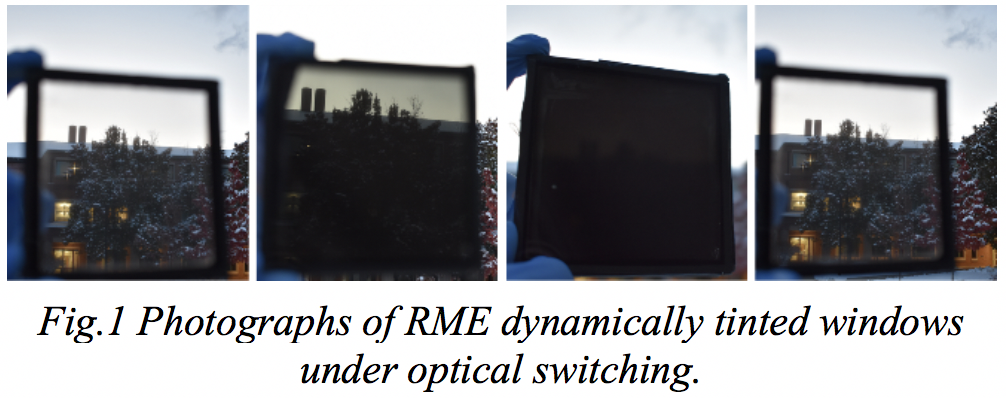2020 Virtual AIChE Annual Meeting
(64c) Dynamic Glass Based on Reversible Metal Electrodeposition
Author
Metal-based dynamic glass operates on the electrochemical phase change between metal cations dissolved in an electrolyte and elemental metal plated on a transparent conducting electrode. The thickness, morphology, and composition of the plated metal film dictates the optical properties of the dynamic glass. To enable uniform plating of metal over large areas, transparent electrodes are coated with a monolayer of Pt nanoparticles. The nanoparticles act as seeds that control where the metal nucleates and how it grows on the electrode. We use an aqueous, nonhalide-based electrolyte with enhanced durability that permits reversible metal electrodeposition without harming the electrode or introducing irreversible side reactions that inhibit cycle life. With this electrolyte, we demonstrate 10,000 stable cycles with color-neutral, fast switching (<1 minute), high optical contrast (>60%), and extended shelf life (>8 months). We also demonstrate how polymeric additives in the electrolyte influence the growth
of the metallic films and thus enable direct control over the unique optical properties of our devices. Finally, we present large-area prototypes (15cm x 15cm) with uniform tinting and discuss our path towards full-scale (> 1 m2) dynamic windows. We are optimistic that windows based on reversible metal electrodeposition will be cheaper than ones based on sputtering of metal oxides since the electrolyte is inexpensive and can be injected into the window using low cost methods.
We will discuss the advantrages and disadvantages of counter electrodes based on visible metal grids, invisible metal micromeshes and metal oxides.
Fig.1 Photographs of RME dynamically tinted windows under optical switching.
References
[1] C. J. Barile, M. D. McGehee, et. al, Joule, 1, 133 (2017).
[2] T. S. Hernandez, M. D. McGehee, et. al, ACS Energy Letters, 3, 104 (2018).
[3] M. T. Strand, M. D. McGehee, et. al, ACS Energy Letters, 3, 11 (2018).
